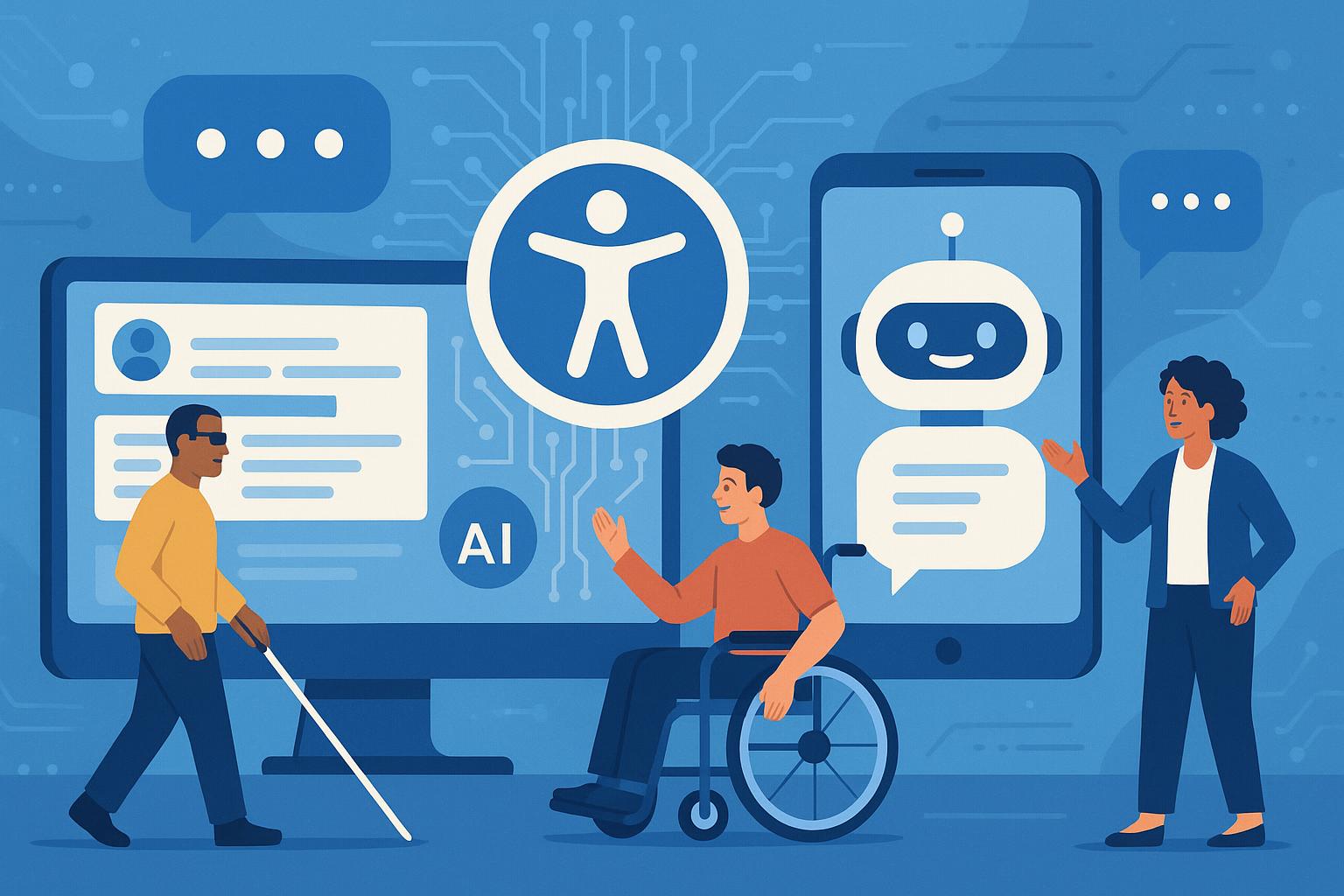Trust in Conversation: Ensuring Secure and Private Interactions with AI Chatbots
As the digital landscape expands, user interactions with technology are becoming more sophisticated and personalized. AI-driven chat-based user interfaces, especially chatbots, are at the forefront of this transformation, revolutionizing traditional web UI/UX design. These tools are increasingly embedded in professional environments across diverse industries, managing sensitive tasks and data. This article explores the crucial elements of trust, privacy, and security in AI chatbots, emphasizing the measures developers must implement to safeguard user interactions.
Understanding the Role of AI Chatbots in Professional Settings
AI chatbots are extensively utilized in sectors such as healthcare, education, finance, and e-commerce. They perform various functions, from handling financial transactions and processing patient information to offering personalized learning experiences and managing customer service inquiries. The efficiency and convenience provided by chatbots are clear, yet they bring substantial privacy and security concerns, especially regarding the management of confidential data.
Key Privacy and Security Challenges
- Data Breach Risks: Given their access to large volumes of personal and sensitive data, chatbots can become targets for data breaches, which may lead to significant financial and reputational harm.
- Compliance with Legal Standards: Data privacy and security are governed by stringent regulations across various regions and industries, including GDPR in Europe and HIPAA in U.S. healthcare. Compliance is crucial for legal operation and for maintaining user trust.
- Ensuring Data Integrity: The accuracy and consistency of data collected and processed by chatbots are critical, particularly when this data informs automated decisions.
Strategies for Enhancing Trust in AI Chatbots
To mitigate these challenges, developers and organizations should adopt comprehensive strategies, which include:
- Implementing Advanced Security Protocols: This involves utilizing encryption for stored and transmitted data, using secure APIs, and conducting regular security audits to detect and address vulnerabilities.
- Transparency and User Control: It is vital to inform users about how their data is used and to provide them with control over this data. This includes clear privacy policies and user-friendly privacy settings.
- Regular Compliance Checks: Keeping up-to-date with the latest regulations and performing regular compliance reviews are essential to ensure that chatbot systems comply with all legal requirements.
- Anonymization of Data: When feasible, anonymizing data processed by chatbots can significantly reduce privacy breach risks.
Real-World Examples of Secure AI Chatbot Applications
Here are some instances where AI chatbots are securely integrated into professional workflows:
- In Healthcare: An AI chatbot that addresses patient inquiries about symptoms and retrieves lab results, adhering to HIPAA regulations to safeguard patient privacy.
- In Finance: A chatbot interfacing with accounting systems like QuickBooks to handle invoices and produce financial reports, secured with end-to-end encryption.
- In Education: A personalized tutoring chatbot that anonymizes student performance data to offer tailored learning experiences safely.
Conclusion: Building a Trustworthy Digital Future
The integration of AI chatbots into professional settings presents vast opportunities for innovation and efficiency. Nevertheless, the adoption of these technologies must be paired with rigorous measures to protect user data and secure interactions. By focusing on advanced security protocols, adherence to legal standards, and prioritizing transparency and user control, developers can craft chatbots that are not only intelligent and responsive but also trustworthy and safe. As we progress through this digital evolution, the importance of trust in technology will become more pivotal, not only in maintaining security but also in enhancing long-term user engagement and loyalty.
With robust strategies in place, AI chatbots can deliver a dynamic and personalized user experience that reassures users their data is treated with the highest regard for privacy and security. As technology advances, our approaches to privacy and security must evolve accordingly, ensuring that AI remains a potent instrument for professional advancement across all sectors.












